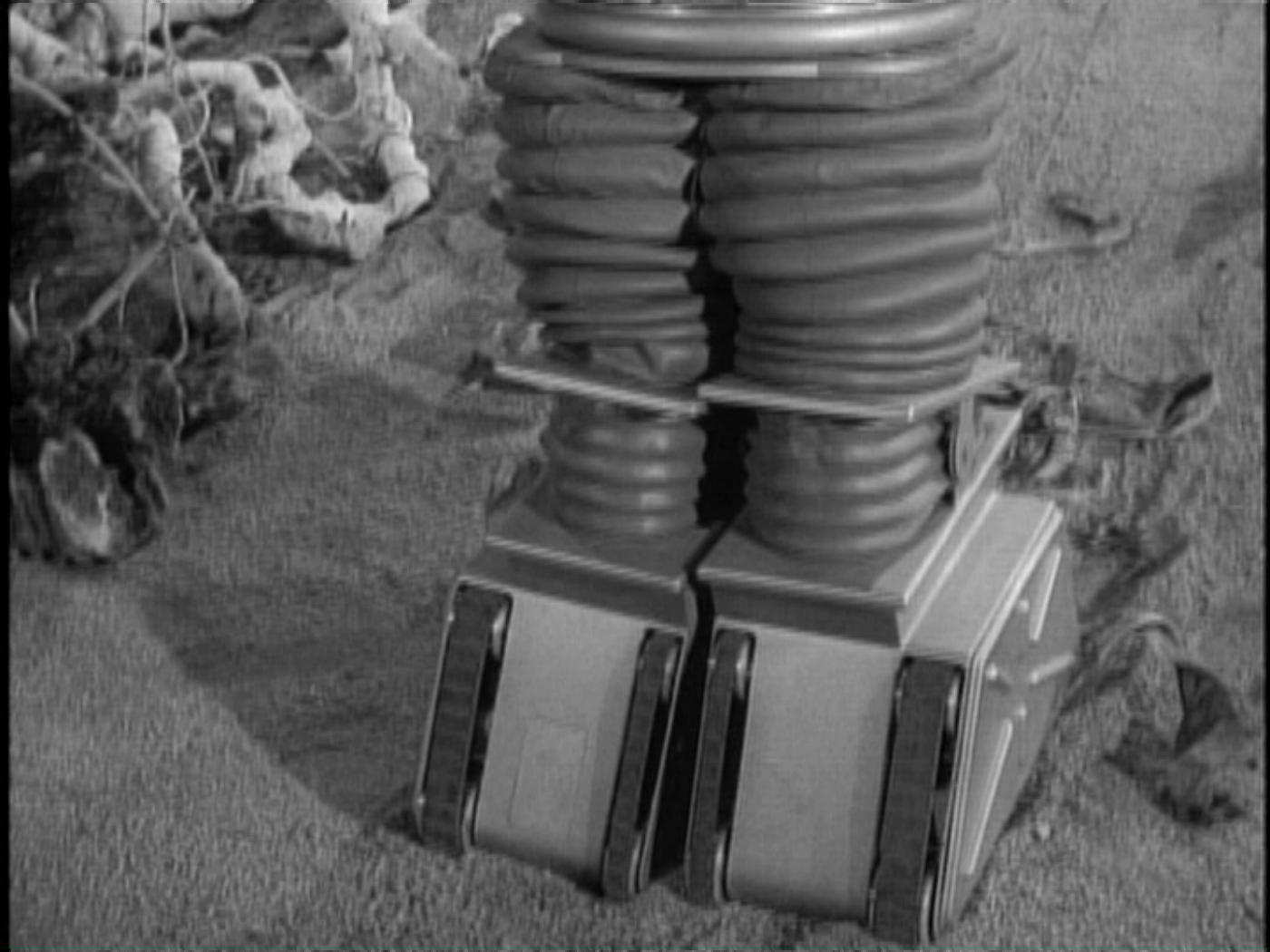







|
|
|
THE LEGS
 |
 |
 |
 |
 |
 |
 |
 |
Note the important
difference in the legs between seasons:
| First Season (1965-1966) | Second Season (1966-1967) | Third Season (1967-1968) |
 |
 |
 |
 |
 |
 |
 |
 |
 |
In the first season of Lost in Space, 1965-1966, the legs almost appear to be cleft all the way up to the waist plate. In fact, they were really quite similar to design the second-season legs. It was the execution that made all the difference. I was once told that Robert Kinoshita, the designer of the robot, had all along intended the robot's legs to look like second-season legs. In the rush to complete the robot prior to the day of shooting the first episode of the first season, "The Reluctant Stowaway" (episode 1, original air date: 15 September 1965), something went wrong with the casting process. The result was the deep cleavage and the unsightly misshapen areas in the top few bellows. This could have been a result of the rubber sticking to the mold or not curing properly before being removed from the mold. Kinoshita had wanted to redo the casting to correct the errors, but Irwin Allen refused to authorize the expenditure of funds to cast another pair of legs. It was not until the interval between the first and second season, during which the robot costume underwent a number of alterations, that Kinoshita was given approval to try casting the legs once again.
The undeniable element of truth in the anecdote that I repeated above is that the first-season legs had many malformed areas. This may well have been a source of distress for Kinoshita. As for the low-crotch legs of the second and third seasons, there must be another explanation for their introduction.
The first season
Bermuda shorts, however, are a separate pair of rubber legs. They have
the second-season, cleavage-free look. (see
Mystery
of the Bermuda Shorts for more details).

Irwin Allen
must have allowed this second pair to be cast. Allen was probably putting
his foot down on the casting of a third pair of legs to replace
the misshapen first pair.
.

They almost look like the second-season legs.
In some episodes,
the robot's torso is turned backwards so that the back of the legs serve
as the front of the robot. This is quite obvious in the following two screen
grabs from the first-season episode "War of the Robots" (episode # 20.
Original airdate: 9 February 1966).
 |
 |
This is clearly the backside of the robot's legs because in the photograph on the left, the tread box has no soil sampler door. More importantly, in both photographs, the little screw and tab assembly is absent from the left (robot's left) corner of the waist plate. Notice how different the backside of the legs is from the front.
This discrepancy was corrected with the new legs, which made their appearance in the first episode of the second season.
The "Zipper"
| First Season | Third Season |
 |
 |
 |
 |
What purpose does this this "zipper" or flange serve? Is this a seam? Is it possible that the two legs were cast from a single mold, and that this "zipper" masks the seam where one leg is attached to the other?
For the first-season legs, keen observers have speculated that the "zipper" is actually a cord or wire that serves to hold up the crotch of the thin rubber legs.
For the second and third-season legs, the "zipper" is clearly an inseperable and probably functionless element of the rubber legs rather than a separable cord.
Whatever the case, the "zipper" is a feature that, in the opinion of many robot builders, should not to be counted among the robot's aesthetic virtues.